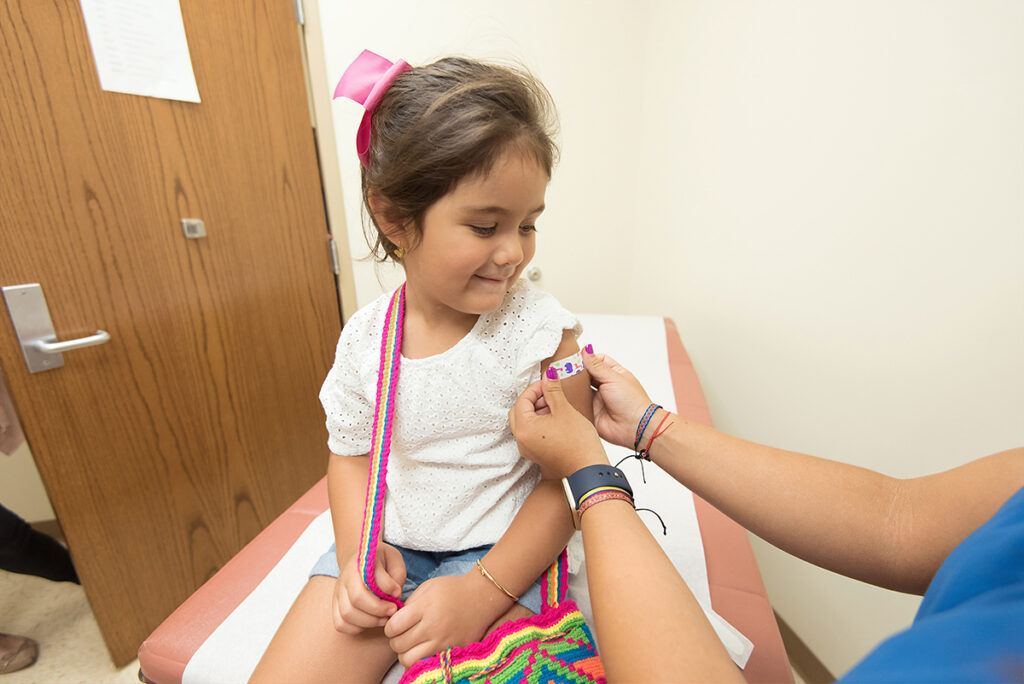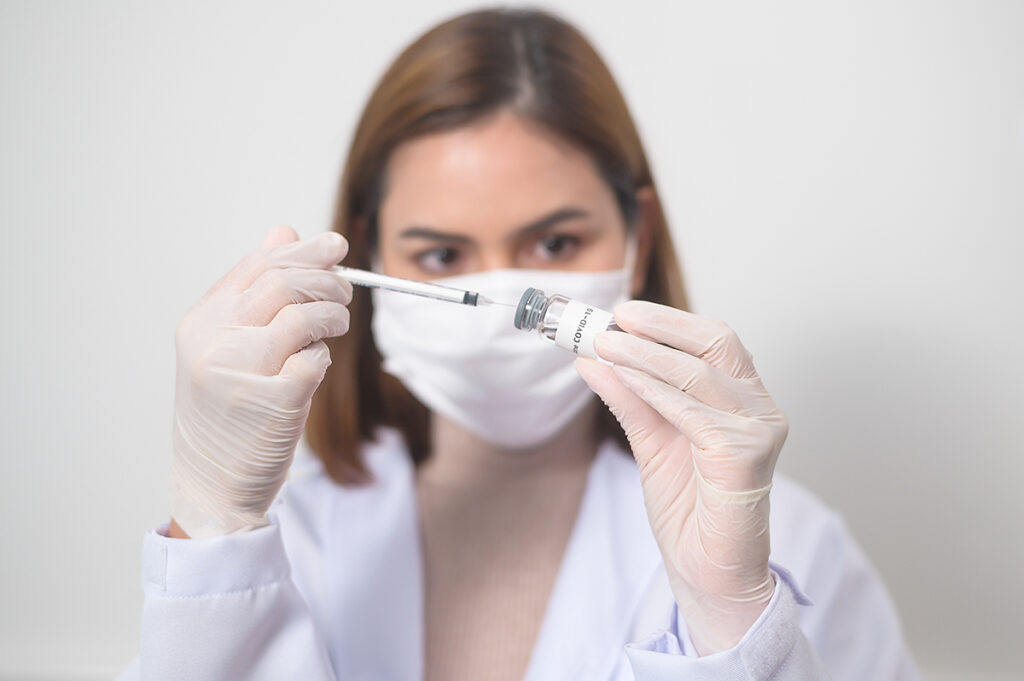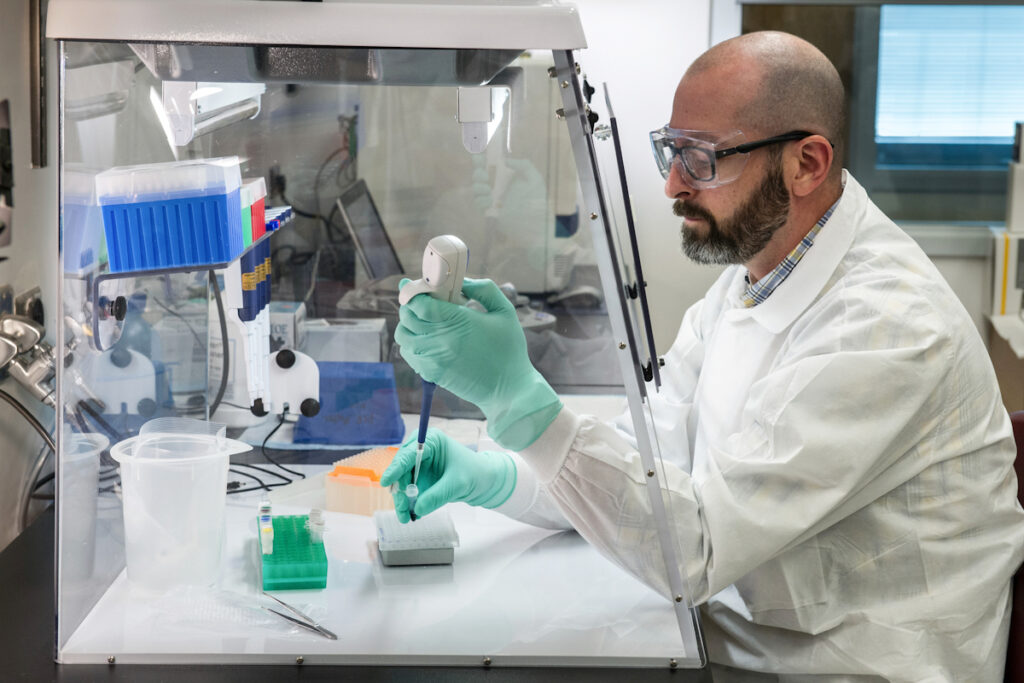Type I interferon is a universal antiviral agent. It is widely used to treat viral infections for which there is no cure or vaccine. The most studied type I interferon is interferon-alpha-2b (IFN-α2b). Chinese scientists investigated the therapeutic effect of IFN-α2b and drug initiation regimens for the treatment of COVID-19.
Study design
The multicenter retrospective study included 1401 patients with confirmed coronavirus infection. All participants were over 18 years old.
852 patients in the test group received, besides standard treatment, additional inhalations of interferon-alpha-2b aerosol twice a day, in total 5,000,000 IU/day. 549 patients in the control group received only standard treatment. Standard treatment was carried out under the guidelines for diagnosing and treating COVID-19 of the Chinese National Health Commission.
Scientists assessed clinical outcomes by:
- duration of hospitalization;
- the interval between the onset of symptoms and the first negative test for coronavirus;
- development of respiratory failure requiring mechanical ventilation;
- development of failure of other organs, requiring treatment in the intensive care unit;
- the presence of septic shock;
- the need for lung transplantation;
- needs for extracorporeal membrane oxygenation;
- the need for venovenous hemofiltration;
- a case of death.
Experts aimed to assess, in days, the relationship between the initiation of treatment with IFN-α2b and one or more clinical outcomes.
Research results
Inhalation with interferon-alpha-2b aerosol combined with standard treatment reduced the incidence of several adverse clinical outcomes by 64%.
In patients receiving IFN-α2b and standard treatment, the risk of poor clinical outcome was significantly lower than in patients receiving only standard treatment:
| Standard treatment | Standard treatment and IFN-α2b | |
| Total people | 549 | 852 |
| Number of cases of unfavorable clinical outcome (% of total) | 51 (9,3%) | 32 (3,8%) |
A detailed analysis of clinical outcomes showed that patients in the IFN-α2b group recovered faster and had a shorter hospital stay. Patients in this group took fewer days from the onset of symptoms to the first negative coronavirus test:
| Standard treatment | Standard treatment and IFN-α2b | |
| Period from the onset of symptoms to the first negative test (days) | 20 (14 – 28) | 17 (13 – 24) |
| Time from hospitalization to first negative test | 14 (9 – 23) | 13 (9 – 19) |
| Duration of hospitalization (days) | 18 (12 – 26) | 17 (13 – 23) |
| Admission to the intensive care unit (number of people) | 40 (7,3%) | 23 (2,7%) |
| Artificial lung ventilation (number of people) | 35 (6,4%) | 25 (3,1%) |
| Extracorporeal membrane oxygenation (number of people) | 7 (1,3%) | 8 (0,9%) |
| Veno-venous hemofiltration (number of people) | 3 (0,6%) | 2 (0,2%) |
| Septic shock (number of people) | 1 (0,2%) | 5 (0,6%) |
| Death (number of people) | 0 (0%) | 1 (0,1%) |
Analysis of the time to start therapy with interferon-alpha-2b showed that the best treatment results were in the group where inhalations began 0-2 days after the onset of symptoms. Inhalation of IFN-α2b was less effective than when treatment started 3-5 days after symptoms. If the treatment was started after 6 or more days, then the risk ratio of adverse clinical outcomes was consistently high, although it remained lower than in the group of patients who received only standard treatment:
| 0-2 days | 3-5 days | 6-8 days | 9-11 days | More than 12 days | |
| Total people in the IFN-α2b group | 208 | 279 | 206 | 109 | 50 |
| Number of cases of unfavorable clinical outcome (% of total) | 2 (1,0%) | 9 (3,2%) | 12 (5,8%) | 6 (5,5%) | 3 (6,0%) |
To improve the accuracy of the results obtained and to minimize bias, the scientists adjusted for the age of patients, their sex, the presence of diabetes, smoking status, clinical severity of the disease upon admission, length of hospital stay, C-reactive protein level, and the ratio of neutrophils to lymphocytes of patients.
Conclusions
Chinese experts have shown that inhalation of interferon-alpha-2b aerosol combined with standard treatment improves the clinical outcomes of patients with COVID-19. This clinical advantage remained significant in all groups, even after adjusting for the relevant factors. In addition, IFN-α2b therapy reduced the frequency of several adverse clinical outcomes by 64%.
When analyzing subgroups of patients treated with interferon-alpha-2b, scientists investigated the relationship between starting the drug and clinical outcomes. A later start of treatment from the onset of symptoms was associated with an increased likelihood of complications.
Chinese experts note that innate immunity and especially the production of type I interferons by the body are the first line of defense against viral infection. Interferon stimulates the cell to produce antiviral defense proteins that interfere with viral metabolism, replication and spread. The lack of interferon increases inflammation in the lungs by attracting monocytes, macrophages and neutrophils. The SARS-CoV-2 coronavirus, which causes COVID-19, suppresses the body’s production of its own interferon. Therefore, timely replenishment of type I interferon by inhalation improves the clinical outcomes of patients, accelerates the resolution of radiological anomalies of the lungs and promotes antiviral immunity.



